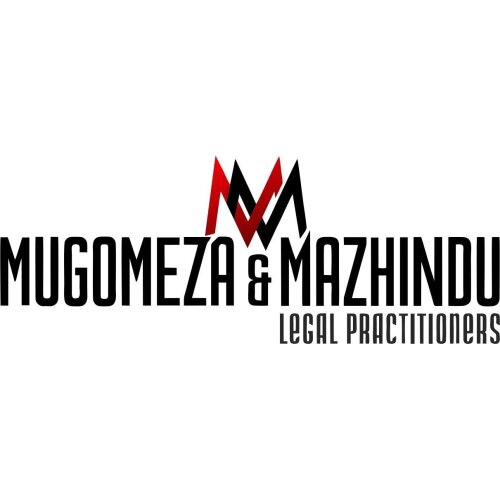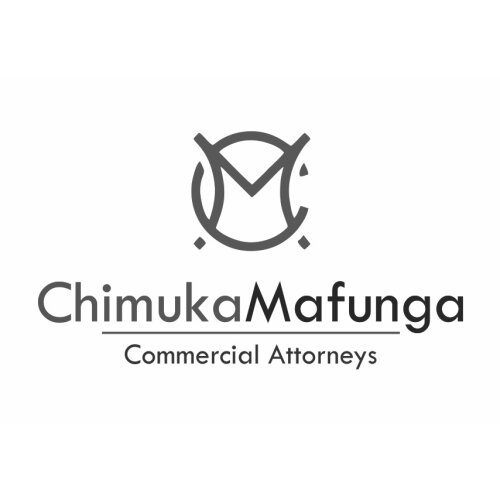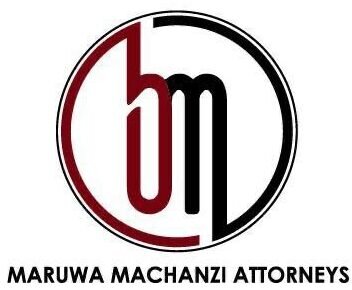Best Sanctions & Export Controls Lawyers in Harare
Share your needs with us, get contacted by law firms.
Free. Takes 2 min.
List of the best lawyers in Harare, Zimbabwe
About Sanctions & Export Controls Law in Harare, Zimbabwe
Sanctions and export controls are legal mechanisms that regulate the movement of goods, services, technology, and financial transactions across borders, particularly to or from restricted countries, entities, or individuals. In Harare, Zimbabwe, these laws are influenced by local regulations and international obligations such as United Nations sanctions and regional directives. Compliance with sanctions and export controls is crucial for businesses, organizations, and individuals engaged in cross-border trade, investments, or dealings involving sensitive goods or restricted parties. The government of Zimbabwe enforces these laws to safeguard national interests, support international peace, and adhere to its global responsibilities.
Why You May Need a Lawyer
Legal expertise is often necessary when dealing with sanctions and export control matters due to their complexity and high risk. Here are some common situations where legal assistance is beneficial:
- Engaging in international trade or exporting goods that are subject to export controls.
- Facing investigations or enforcement actions for alleged violations of sanctions laws.
- Uncertainty about whether a product, service, or transaction involves a sanctioned party or country.
- Operating in industries such as mining, agriculture, or technology, where export controls frequently apply.
- Participating in mergers, acquisitions, or investments that could involve restricted parties or jurisdictions.
- Seeking licenses, permits, or authorizations for exports subject to regulatory restrictions.
- Reviewing contracts or business processes to ensure compliance with applicable laws.
- Responding to requests for information or audits from local or international authorities.
Given the serious implications of non-compliance, including fines, criminal charges, and reputational damage, a lawyer can provide guidance on navigating Zimbabwe's legal landscape, assessing risks, and ensuring adherence to both local and international requirements.
Local Laws Overview
Sanctions and export controls in Harare are shaped by several legal frameworks and governmental authorities. The primary areas of focus include:
- The Control of Goods Act - This law regulates the import and export of goods into and out of Zimbabwe. It empowers government agencies to prohibit or restrict the movement of certain items, especially those deemed sensitive or strategically important.
- Customs and Excise Regulations - Zimbabwe Revenue Authority (ZIMRA) enforces rules around the declaration, assessment, and monitoring of goods crossing borders.
- Sanctions Enforcement - Zimbabwe implements international sanctions, particularly those set forth by the United Nations Security Council. These can include asset freezes, travel bans, and restrictions on trade with certain entities or individuals. The Reserve Bank of Zimbabwe and the Ministry of Foreign Affairs play roles in administering these measures.
- Export Licensing - Certain goods, such as minerals, wildlife products, and dual-use items (goods with both civilian and military applications), require export permits or licenses. These are typically issued by sector-specific ministries.
- Penalties and Enforcement - Violations can result in administrative, civil, or criminal penalties, including hefty fines, imprisonment, seizure of goods, or revocation of business licenses.
Because local laws can intersect with international regulations, businesses and individuals must be aware of both the Zimbabwean legal environment and broader global requirements when engaging in cross-border dealings.
Frequently Asked Questions
What are sanctions and export controls?
Sanctions are restrictions imposed by governments to limit or ban certain activities with specified countries, individuals, or entities. Export controls are legal measures regulating which goods, technology, or services can be exported and to whom, often for reasons related to national security, foreign policy, or international obligations.
Who enforces sanctions and export controls in Zimbabwe?
Enforcement is shared between the Zimbabwe Revenue Authority (ZIMRA), the Ministry of Foreign Affairs, the Ministry of Industry and Commerce, and other relevant government bodies. They implement both local laws and international obligations.
Are there specific products or industries that are more affected?
Yes. Industries such as mining, energy, agriculture, telecommunications, and technology are frequently subject to export controls and sanctions due to the sensitive nature of their products or the countries where they operate.
What penalties can I face for violating sanctions or export control laws?
Penalties may include fines, imprisonment, forfeiture of goods, losing export privileges, and reputational harm. Both individuals and companies can be held liable.
How do I determine if my transaction or business partner is subject to sanctions?
A legal professional can help research lists of sanctioned parties from local and international authorities. Due diligence processes and up-to-date sanction lists are essential tools.
Can I apply for a license to export restricted goods?
Yes. Certain exports require a license or permit from the appropriate ministry or regulatory authority. The process can be detailed and often requires a strong justification for the export.
Do Zimbabwean laws apply to foreign nationals or only to local residents?
Zimbabwe’s sanctions and export controls can apply to any person or entity dealing with goods, services, or technology within Zimbabwe. Foreign nationals and companies operating in the country must comply with local laws.
Are there differences between UN and local Zimbabwean sanctions?
Zimbabwe applies both United Nations sanctions and its own measures. While UN sanctions are binding internationally, Zimbabwe may also impose additional restrictions relevant to its national interests.
How can a lawyer help with sanctions and export control matters?
A lawyer can provide compliance advice, conduct due diligence, represent clients during investigations, apply for licenses, appeal enforcement actions, and draft compliant contracts.
Where can I find more information or report a suspected violation?
Government ministries such as the Ministry of Foreign Affairs or ZIMRA can provide further information, accept reports, and offer guidance on compliance issues.
Additional Resources
When seeking information or guidance about sanctions and export controls in Harare, consider consulting the following bodies:
- Zimbabwe Revenue Authority (ZIMRA)
- Ministry of Industry and Commerce
- Ministry of Foreign Affairs and International Trade
- Reserve Bank of Zimbabwe (for financial sanctions and currency controls)
- Zimbabwe Investment and Development Agency (for investment-related export controls)
- Law Society of Zimbabwe (for referrals to qualified legal practitioners)
- Zimbabwe Chamber of Commerce (for business compliance guidance)
You may also find reports and bulletins from international organizations, such as the United Nations Security Council and regional bodies like the African Union, to be useful in understanding the broader context of sanctions affecting Zimbabwe.
Next Steps
If you believe you need legal assistance with sanctions or export control matters in Harare, consider the following steps:
- Gather all relevant documents, licenses, and business records pertaining to your transaction or business activity.
- Consult the websites or offices of relevant governmental bodies for updated regulatory guidance and requirements.
- Contact a qualified lawyer with experience in sanctions, export controls, and cross-border transactions. The Law Society of Zimbabwe can provide referrals.
- Prepare a list of questions and outline your specific concerns or compliance challenges to discuss with your lawyer.
- Stay informed about changes in local and international laws that may impact your activities.
Taking proactive steps to understand and comply with sanctions and export controls will protect your interests and ensure your business or personal actions are in line with Zimbabwean and international regulations.
Lawzana helps you find the best lawyers and law firms in Harare through a curated and pre-screened list of qualified legal professionals. Our platform offers rankings and detailed profiles of attorneys and law firms, allowing you to compare based on practice areas, including Sanctions & Export Controls, experience, and client feedback.
Each profile includes a description of the firm's areas of practice, client reviews, team members and partners, year of establishment, spoken languages, office locations, contact information, social media presence, and any published articles or resources. Most firms on our platform speak English and are experienced in both local and international legal matters.
Get a quote from top-rated law firms in Harare, Zimbabwe — quickly, securely, and without unnecessary hassle.
Disclaimer:
The information provided on this page is for general informational purposes only and does not constitute legal advice. While we strive to ensure the accuracy and relevance of the content, legal information may change over time, and interpretations of the law can vary. You should always consult with a qualified legal professional for advice specific to your situation.
We disclaim all liability for actions taken or not taken based on the content of this page. If you believe any information is incorrect or outdated, please contact us, and we will review and update it where appropriate.















